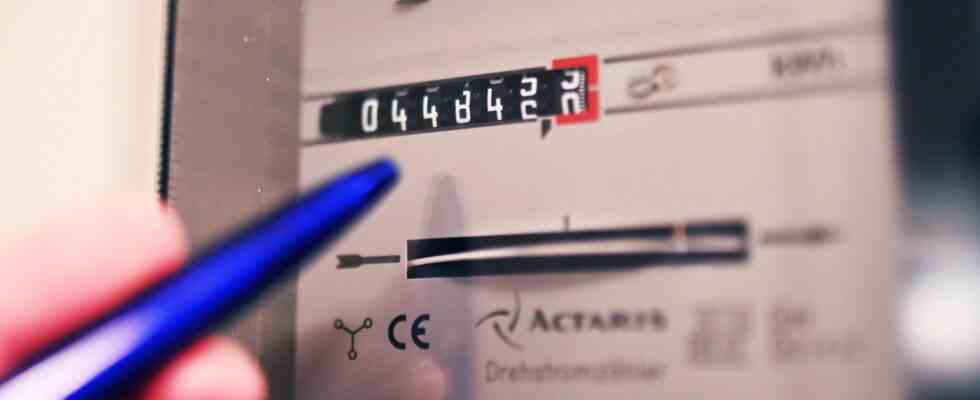analysis
Status: 09/12/2022 11:25 a.m
Because of the high gas prices, most energy producers are currently making a lot of money. Politicians want to collect these extra profits. But how is that supposed to work in practice? And where are the pitfalls?
Italy, Spain, Hungary and the UK have stepped forward: they are already limiting the extra profits of the energy sector in various ways. Now Germany and the other EU countries want to follow suit: At their meeting on Friday, the energy ministers of the EU countries approved a profit cap for electricity producers. The EU Commission is to present concrete proposals by mid-September.
However, it remains unclear whether the skimming off of special profits will be mandatory for all EU countries. “It’s still unclear how uniform the model should be across the EU,” says Felix Matthes, an energy expert at the Öko-Institut. In the end, the “skimming model” could also be implemented purely nationally.
High profits with green electricity
Many other details have not yet been clarified. It starts with the definition of the term. The word “random win” was previously only used in the lottery. The term is now finding its way into the energy industry. In fact, the drastic increase in electricity prices over the past few months has been like a kind of lottery win for the electricity producers, even if nobody in the industry would say so openly. The operators of wind and solar parks, nuclear and coal-fired power plants benefited from the high energy prices. Green electricity providers in particular made significantly higher profits in the first half of 2022.
The so-called “merit order system” on which the European electricity market is based is also responsible for the jump in profits. Accordingly, the electricity price is based on the most expensive energy source. In the end it was the gas-fired power plants. Other energy companies that produce electricity more cheaply – for example from wind, solar or nuclear power – make big profits because they don’t have to buy expensive gas and can sell their electricity at higher prices. Politicians and experts call this “accidental profits”, i.e. unexpected profits.
Upper limit of 200 euros per MWh
According to the plans of the EU and the federal government, part of the chance profits should be skimmed off. How could this work? The plan is to introduce a revenue cap for producers. This should be 200 euros per megawatt hour (MWh). That means: all incomes of the generators that exceed the level of 200 euros per MWh are redistributed to the consumers.
What sounds simple in theory is much more complicated in practice. The revenue cap is calculated based on sales based on spot market prices. In reality, however, only part of the electricity is traded on the exchange, i.e. on the spot market. Most trading is done through futures markets. The large power plant operators have concluded long-term supply contracts that are not very transparent. It is almost impossible to intervene retrospectively in these contracts.
The federal government is therefore planning a two-tier system. Only for wind and solar energy producers who sell their energy largely on the spot market should there be a revenue cap of probably EUR 200 per MWh. The other producers – of energy from coal, gas and oil – should be asked to pay a “crisis contribution” or “solidarity contribution”. How high this should be is not yet clear.
Producers call for interventions “with a sense of proportion”
The German electricity industry reacted cautiously to the plans from Brussels and Berlin. The utility RWE demands that short-term market interventions be designed in such a way that the market continues to function and companies can also invest. The interventions should be limited in time.
The green electricity industry basically accepts that the special profits should be taken away from them. According to Carsten Körnig, General Manager of the German Solar Industry Association, the return of the unplanned income should be carried out with external dimensions. Those who are urgently needed to overcome the fossil energy crisis should not be burdened.
Measures for this winter should not provoke the problems in the following winter, warns Wolfram Axthelm, Managing Director of the German Wind Energy Association. The incentives for new investments in renewable energies should not disappear. Simone Peter, head of the Federal Association of Renewable Energies (BEE) thinks it is right that the EU is tackling the problem of distortions in the electricity market. When designing the measures, however, maximum accuracy is required.
Experts are skeptical
In detail, there are some objections from energy experts and economists. Michael Hüther, director of the Institute of German Economics (IW), criticizes the determination of the relevant profit based on the current differences between the spot market price and an average price over several years. Firstly, there are no uniform prices for renewable energy sources. Secondly, he asks himself which spot market prices one wants to use as a basis. “Because these are calculated from the hourly prices and quantities of all electricity exchanges,” said Hüther tagesschau.de. He thinks it’s better to use the energy companies’ annual profits to calculate random profits rather than the remuneration for individual products.
Skimming off profits shouldn’t be based solely on spot market prices, says Lion Hirth, Professor of Energy Policy at the Hertie School in Berlin. “Otherwise, many companies would skim off more profit than was actually made,” said the expert tagesschau.de. Hirth considers the planned measures in the European energy market to be a “complicated intervention, an open-heart operation.”
The federal government hopes for 12 billion euros
According to the federal government, skimming off the random prizes should bring in a good 12 billion euros – and relieve consumers accordingly. However, experts doubt that so much money can be raised. “In any case, it will be in the high single-digit billions,” believes Öko-Institut expert Matthes.

